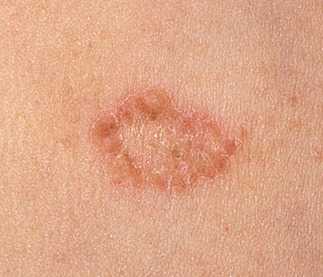Related Topics
Old Age
New topic 2019-04-09 16:04:33 description
Old Age, Re-designed
A grumpy analysis of future trends from a member of the Grumpy Generation.
Popular Passages
New topic 2013-02-05 15:24:06 description
Itch

|
| Dog Itches |
If the reader has had itchy, dry skin, or a diagnosis of eczema before the age of say 65, stop reading right now and go see a dermatologist. Most elderly people have skin problems, but here we talk about elderly people who have developed skin problems for the first time. We particularly talk about brisk busy people who proudly boast they never had skin problems, but boy they sure have them now. Such people have never been to a dermatologist, wouldn't know where to find one, and therefore don't even know the basics of the subject. Furthermore, what they likely have right now is related to old age, because you mostly can't have diseases of old age until you achieve the status of the elderly. So, if you had something like this before, it becomes complicated to distinguish it from the disorders of old age and you better go see a dermatologist.
If that sounds too simple to accept, just think about the following. Dermatitis means skin disease, and eczema is synonymous with dermatitis with the proviso that it oozes, and unfortunately most dermatitis oozes at least to some degree. Take a quick look at eczema in a computer search engine; the first thing it will tell you is the cause is not understood. The second thing it will say is that eczema is mostly found in children. Perhaps now you get the idea; if you have had this in the past, go away and see a skin doctor.
On the other hand, any group of old folks sitting around the table in a retirement home will immediately brighten up at the mention of skin problems, since most old folks have skin problems. These people itch and itch badly. Everyone at any age has been bitten by mosquitoes and had an occasional run-in with poison ivy, but these produce bearable itches; the itch of senile eczema is unbearable, gets your full attention. It keeps you awake at night, and thus makes you drop off asleep during the day. The things everybody learns will give heavenly quick relief are generally agreed to make you worse, don't do them. Scratching makes things worse, leading to a mysterious thickening of the skin known as lichenification (that's thickening of the skin, in Latin) which is sort of a scarlet letter among dermatologists, you bad person. And the second thing is a habit of deep scratching so bad you cover your shoulders and back with little red ulcers without fully realizing you are doing this yourself, excoriating your skin with your fingernails. Since people do this without realizing it, of course, they deny it, and doctors for a long time regarded them as nut cases. However, the current more balanced view is that somehow this kind of excoriation suppresses, depresses or otherwise mysteriously inhibits the unbearable itch. So all of this adds up to saying that elderly eczema drives an old codger to the point of dominating his whole thought process; good manners are damned, he wants to talk about it. Better still, do something about it, right now.

|
| Nummular Eczema |
That being the case, helpful friends of a certain age know what to advise: hydrocortisone ointment, or the even more potent fluorinated steroid ointments. This stuff really works, particularly if there is some sort of visible skin eruption to direct your effort, but it's dangerous to use too much. It makes the skin lesion and the itch vanish in a couple of days, although of course, it is likely to return in a week; keep that up and you will get skin atrophy, and in large quantities will suppress the activity of your adrenal glands. So, if the area of the itch is so small there is no danger from the ointment you probably can get along without it, whereas if the affected area is large, you are unwise to paint yourself with a lot of this poison. You could take the same stuff in pills, but that gets you to a dermatologist, so you are already in the pay grade above where you should self-medicate.
The other home remedy which offers instant relief is hot water. Usually administered as a hot shower lasting a good long time, or luxuriating in a warm tub, or best of all a hot whirlpool bath. Unfortunately, this is really bad news for eczema, almost surely making it much worse. Swimming pools and whirlpool baths are used communally, so they are chlorinated; don't do this to yourself. Instead, do the opposite; go for a week or ten days without a bath. You heard me right, go right ahead and stink. You'll find that deodorants take care of the armpits, so a limited amount of perfume-free soap to the groin and perianal area is the limit. For the rest of your carcass, go back to Biblical times and apply oil, preferably one of the many skin-healing cosmetic lotions that are somewhat overpriced but generally quite soothing. So that's it; no bath for a couple of weeks, use oils for reasonable cleanliness. There's a long-handled lotion dispenser available for a few dollars, that applies the lotion through plastic balls that act like ball bearings. Since being greasy soon becomes part of the problem, this dispenser cleans and soothes with a minimum of oil.
If this suggestion fails to work, you are getting closer to the dermatologist's office every minute, because you have not only stopped scalding your skin in the shower, you have eliminated the perfumes and antiseptics in soaps and detergents. By the way, while going without a bath, go without shampoo as well; most shampoos are detergents. Drying of the skin by excessive bathing, allergy to soaps and detergents, are the main causes of this condition, so if going without a bath doesn't work, you may well not have the common form of the condition. There are a couple more things to try, however. You can moisturize your skin with alpha Keri, take Benadryl to help you sleep, aspirin to relieve the itch. You can consider laundering your sheets with soap, or plain water, or just about anything except sodium laurate, the main detergent which has more familiar trade names. If the itch is localized to identifiable areas, the underwear covering that area should be laundered in plain water, or the mildest form of unperfumed soap. Recently, a fairly new idea has surfaced in the form of little bottles of hand lotion, touted to prevent the transmission of the common cold. Whatever its value or lack of it in the cold transmission arena, this stuff seems to kill surface germs for quite a number of hours; applying it to an itchy area is worth a try, because many itches are really allergies to skin bacteria and/or fungus. It's particularly effective for athlete's feet, and if you have that, you may have the fungus elsewhere. But don't keep repeating it very long; chronic application of any chemical is usually hard on the skin. Before the pharmaceutical industry became so advanced and overpriced, this approach was effectively addressed by weak topical (it's a poison if you swallow it) solutions of KMnO4 ("Potassium permanganate"); a dollar's worth of which could cure three-quarters of a regiment of its itches. The other quarter better see a dermatologist.
It should take several weeks to exhaust the potential of all of these ideas, so if things are no better, off to the doctor. Every medical student is trained to look for the most serious possible cause of your complaint, no matter how rare. So if we haven't helped your problem, in a few weeks we probably haven't made it much worse, either. When you are filling out your questionnaire at the doctor's office, mention Hodgkins Disease, mycosis fungoides, uremia, and biliary cirrhosis, just in case he thinks you were taking advice from a beginner.
Originally published: Monday, December 28, 2009; most-recently modified: Wednesday, May 01, 2019
| Posted by: Mad | Dec 23, 2012 7:12 AM |